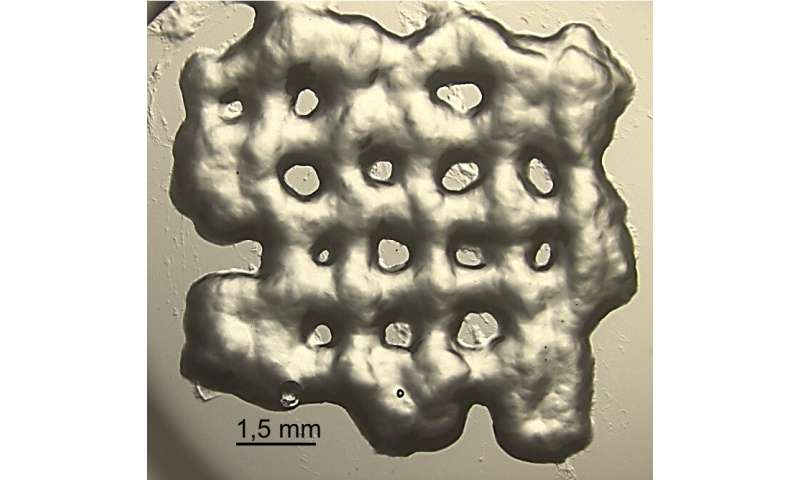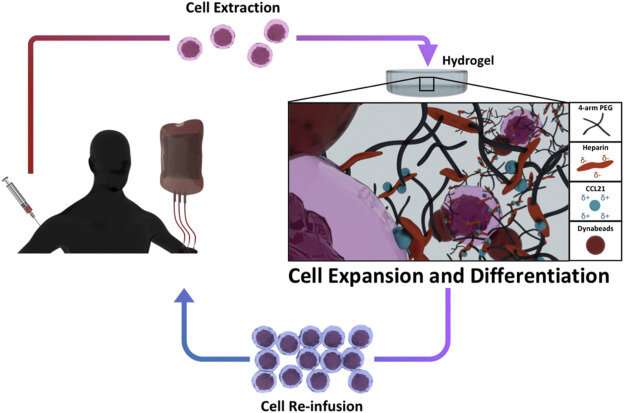
A team with the participation of researchers from the ICMAB has designed new hydrogels for culturing T-cells or T-lymphocytes, cells of the immune system that are used in cancer immunotherapy with the capacity to destroy tumor cells. These hydrogels can mimic lymph nodes in which T-cells reproduce and provide high rates of cell proliferation. Scientists hope to be able to bring this new technology to hospitals soon. The first details are published in the journal Biomaterials.
The 3-D hydrogels are made of polyethylene glycol (PEG), a biocompatible polymer widely used in biomedicine, and heparin, an anticoagulant agent. In this case, the polymer provides the structure and mechanical properties necessary for T-cells to grow, while heparin is used to anchor different biomolecules of interest, such as cytokine CCL21, a protein present in the lymph nodes that has a major role in cell migration and proliferation.
Adoptive cell therapy
Cancer immunotherapy is based on using and strengthening the patients’ immune system so that it recognizes and fights tumor cells without damaging healthy tissues. One such possible treatment, adoptive cell therapy, consists of extracting T-cells from patients, modifying them to make them more active, making numerous copies of them, and injecting them back into patients.
“This personalized therapy, although still very novel, seems to have more lasting effects than current oncological therapies, thanks to some T-lymphocytes that are capable of conferring immunity over time,” says researcher Judith Guasch from the Institute of Materials Science of Barcelona (ICMAB-CSIC). “Its application is limited by the current cell culture media, since they are not effective enough for the proliferation and growth of a relevant amount of therapeutic T-cells in a short time and in an economically viable way.”

Source: Read Full Article
